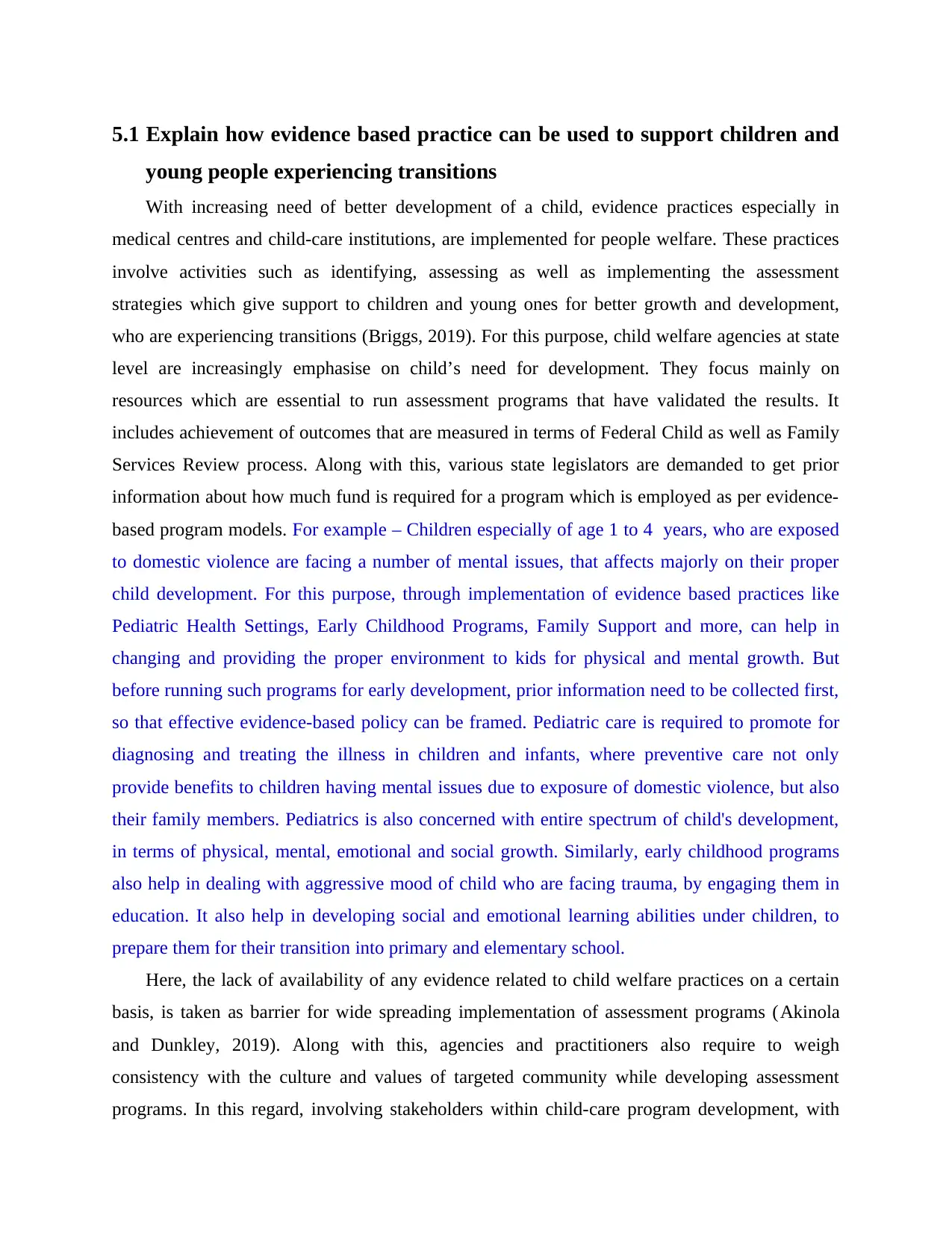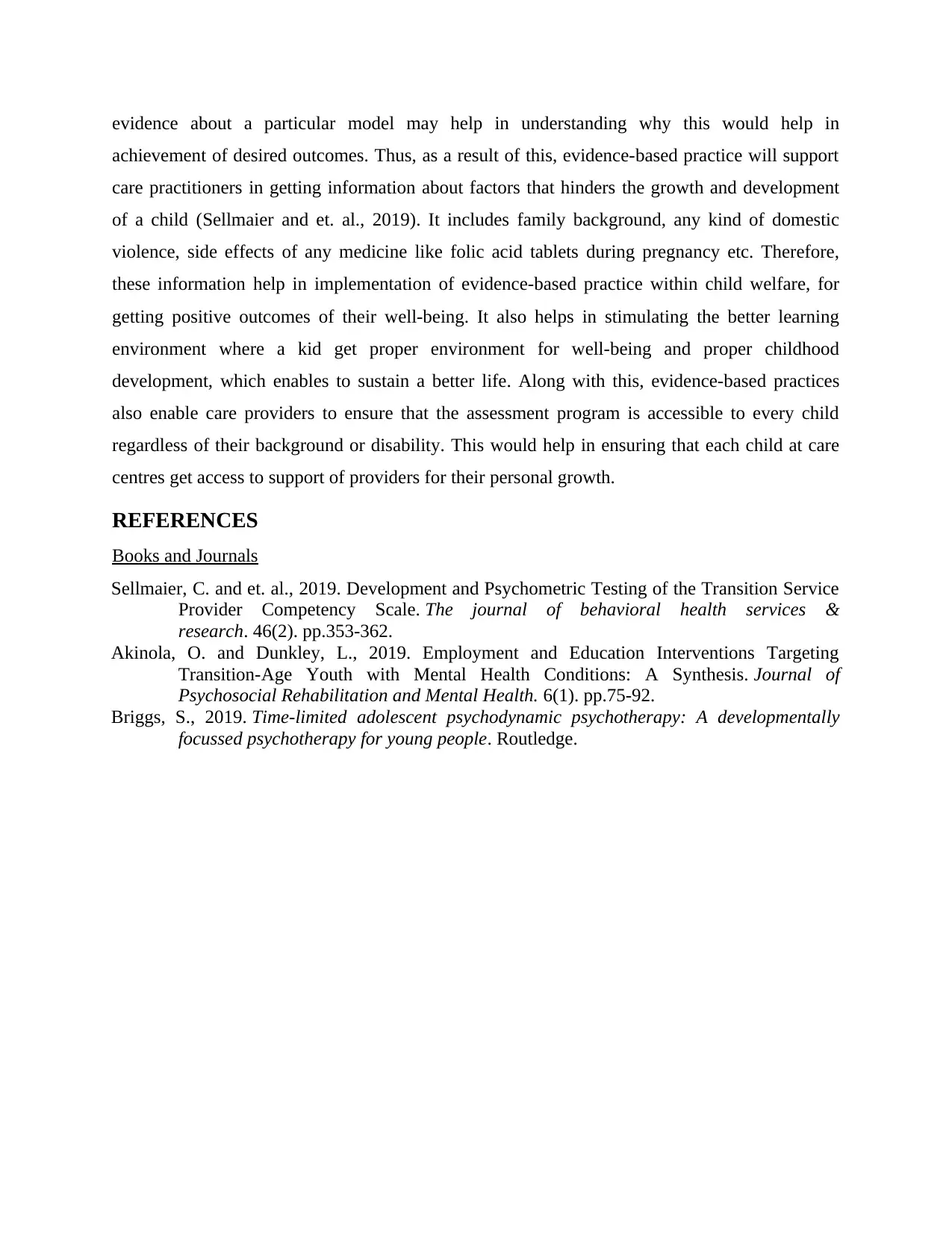Evidence-Based Practice for Child and Young People Transitions Support
VerifiedAdded on 2023/01/19
|2
|753
|73
Report
AI Summary
This report explores the application of evidence-based practice in supporting children and young people through various transitions. It highlights the importance of such practices in child welfare, emphasizing the need for validated assessment programs and sufficient funding. The report discusses the impact of factors like domestic violence on child development and how evidence-based interventions, such as pediatric care and early childhood programs, can mitigate these challenges. It also addresses barriers to implementing assessment programs, such as the lack of readily available evidence and the need to consider cultural values. The report emphasizes the role of evidence-based practice in identifying factors that hinder child development, ensuring accessible programs, and creating a supportive learning environment for children's well-being and proper childhood development. The provided references support the claims made in the report and highlight the importance of research in child welfare.
1 out of 2








![[object Object]](/_next/static/media/star-bottom.7253800d.svg)